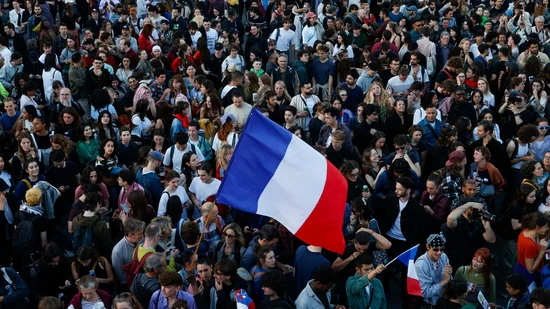In a surprising turn of events, France’s parliamentary election has resulted in a hung parliament, with a left-wing coalition emerging as the largest bloc but falling short of an absolute majority. The New Popular Front (NFP), a recently formed alliance of left-wing parties, secured 182 seats in the National Assembly, surpassing President Emmanuel Macron’s centrist Ensemble alliance, which won 163 seats.
The election results have dealt a significant blow to Macron’s presidency and raised questions about France’s political stability. The far-right National Rally (RN), led by Marine Le Pen, secured 143 seats, marking a substantial increase from their previous representation but falling short of earlier projections.
Prime Minister Gabriel Attal has announced his resignation, though it remains unclear whether President Macron will immediately accept it given the complex task of forming a new government. The possibility of a cohabitation arrangement, where the prime minister comes from a different political bloc than the president, is now being considered.
Jean-Luc Mélenchon, the prominent leader of the France Unbowed party within the NFP, has called for the new prime minister to be selected from their coalition. However, the lack of a clear leader within the NFP and internal divisions complicate this process.
French election
The fragmented parliament is expected to make it challenging for any single group to push through their agenda, potentially weakening France’s role both domestically and on the international stage. This political uncertainty comes at a critical time, with Paris set to host the Olympic Games in the near future.
Financial markets have reacted to the election results, with the euro falling as projections were announced. Analysts predict a period of legislative gridlock and potential instability in French politics.
Furthermore, Spanish Prime Minister Pedro Sánchez hailed the French election results as a rejection of the far right, drawing parallels with recent political shifts in Spain and the United Kingdom. Sánchez said, “This week, two of the largest countries in Europe have chosen the same path that Spain chose a year ago: rejection of the extreme right and a decisive commitment to a social left that addresses people’s problems with serious and brave policies.”
The French election closely followed the United Kingdom’s general election, where the center-left Labour Party secured a landslide victory, ending 14 years of Conservative rule. This series of left-leaning victories in major European countries could signal a broader shift in the continent’s political landscape.

